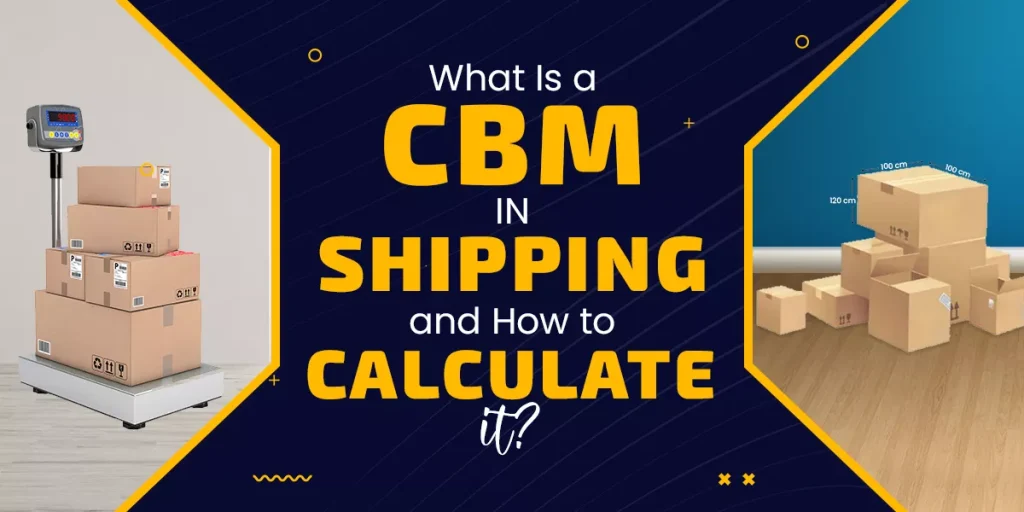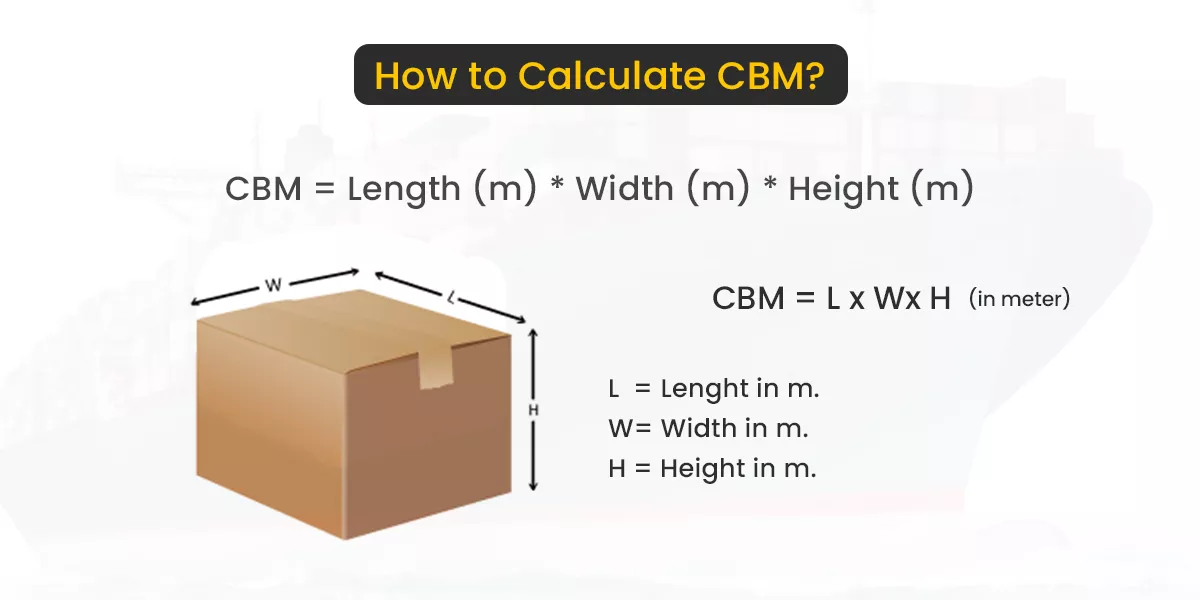If you frequently ship your products, you might come across the term ‘CBM’ Well, CBM measurement is a vital process of transporting shipments and air cargo. In fact, the overall transportation cost depends heavily on it. So, what is a CBM, and how to calculate it? Let’s find out!
Understand the CBM Meaning
What does CBM stand for?
The full form of CBM is Cubic Meter. Speaking of CBM, it is one of the most predominantly used units of measurement for cargo transports globally. Generally, CBM measures the volume of the shipment being sent by air freight or ocean freight. Ultimately, it decides the freight cost of the shipment.
What Is a CBM in shipping?
In brief, deciding the right container size helps you ship your products and manage your freight costs more effectively. For this reason, you must understand how many CBM you can store in a container.
CBM in shipping is the measurement of dimensional or volumetric weight. Accordingly, this measurement is computed by multiplying the shipment’s length x width x height.
Moreover, it also identifies how much unusable space your cargo will take. In turn, that will decide how much freight cost you need to pay for shipping your products.
Simply put, we can say that CBM is the metric volume unit that clarifies how much space your package will take.
How to Calculate CBM?
The CBM formula is a simple calculation:
The quantity of products x length x width x height
How do you calculate CBM?
Calculating CBM is easy only when you know how to convert that into kilograms. In addition, you should also compare that dimensional weight against the gross or actual weight.
If the shipment has different-sized items, you can simply repeat the formula for each size and add up the volumes. Most importantly, you should take note that the units of length, width, and height must be exchanged into meters (m).
How to Calculate CBM with Cm?
If it is easier for you to calculate CBM in cm, you can try the method below!
For example, if you have a shipment with 2 shipping cartons that measure 30cm x 30cm x 30cm and 3 shipping cartons that measure 50cm x 50cm x 50cm.
Here’s how you should calculate CBM:
- Carton 1 – (30cm x 30cm x 30cm) ÷ 1,000,000 = 0.027 CBM x 2 cartons = 0.054 CBM
- Carton 2 – (50cm x 50cm x 50cm) ÷ 1,000,000 = 0.125 CBM x 3 cartons = 0.375 CBM
- Combined CBM = 0.429 (0.054 + 0.375)
How to Calculate CBM with Inches?
To calculate CBM with inches, you can simply follow these few steps:
- Find the dimensions of your package in inches (length, width, and height)
- Follow the CBM formula and multiply all those values together
That’s it! Finding the CBM is super easy and quick.
How Many Products Fit in a Shipping Container?
Well, this question is tricky to answer as there are a lot of possible variables. However, let’s work with some estimations to help you better understand your total cost for shipping.
Basically, freight is not loaded onto a cargo ship or airliner loosely. Instead, it gets put on pallets and those pallets get placed in shipping containers. Here, a normal-sized pallet can hold around 40 normal-sized boxes. And guess what? A 40 ft container can hold around 20 pallets.
What does it mean?
This means you can put about 1,200 normal-sized boxes in an average shipping container.
How Does CBM Affect Shipping Costs?
So now that you know how to calculate cube for shipping, what good does it do you?
Well, knowing the CBM of your shipment can give you a hint into your estimated shipping costs. This way, you can financially prepare for any freight movement that needs to take place. Remember, a high cube results in a higher freight cost, which affects the weight of your freight. But you see, there are three different weights you need to consider as well.
What are they?
Gross Weight
Gross weight is the actual weight in pounds of your package or product when placed on a scale.
Volumetric Weight
You might know volumetric weight as dimensional weight or DIM factor. This is estimated with CBM and is usually used for light-weight packages.
Chargeable Weight
The chargeable weight is used by the shipping company to determine how much you will be charged. Typically, this is whichever weight is higher between your gross weight and your volumetric weight.
The Benefits of CBM in Shipping Costs
Now this must be a question you have in mind. What are the benefits of CBM in shipping costs?
The fact is, CBM is crucial in estimating the capacity of shipping containers. This means that by knowing the CBM of a shipment, you can determine how many products can be loaded into a given container. Eventually, this will help you optimize the use of available space.
Moreover, this information is invaluable for planning and maximizing the efficiency of your shipping process.
Here are the benefits of CBM in shipping costs:
- It can accurately reflect the space occupied by the shipment
- CBM enables fair pricing for bulky but lightweight packages
- It helps in determining freight class in shipping
- CBM can optimize container capacity and maximize space utilization
Overall, CBM is a crucial measurement that affects your shipping costs and logistics efficiency. By considering both weight and size, you will be able to make strategic decisions to optimize your shipping operations. Most importantly, you will be able to minimize costs.
Wrapping Up
No doubt, CBM (Cubic Meter) is a crucial measurement that affects your shipping costs and logistics efficiency. Considering the benefits of CBM in shipping costs, it is a good idea to understand how to calculate it. Hopefully, our guide above will help you know further how to calculate CBM and reduce your shipping costs.
To get assistance with your custom shipping boxes and ensure you can minimize your shipping costs, you can get in contact with Silver Edge Packaging today!















